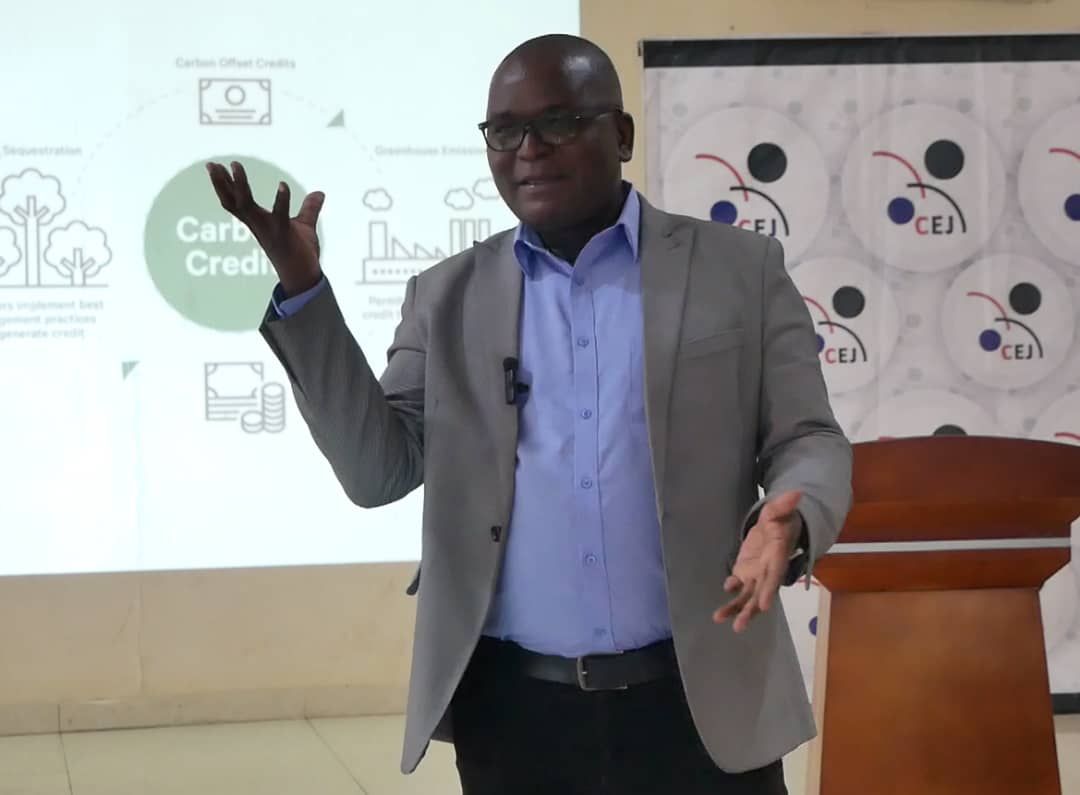Addis Ababa, Friday (November 24, 2023)
Centre for Environment Justice – CEJ has called for inclusive land governance in Africa.
CEJ Head of Research and Studies Freeman Mubanga has further underscored the need to enhance the management of land-based investments in Zambia.
This came to light in presentation by CEJ Head of Research and Studies Freeman Mubanga, during a technical session at the 5th Conference on Land Policy in Africa, currently underway at the African Union Commission Headquarters in Addis Ababa, Ethiopia.
Mr. Mubanga presented his research paper titled “Strengthening Land-Based Investment Governance in Zambia: Exploring the Role of Traditional Land Tenure System.”
He said the research particularly zeroed in on the traditional land tenure system, aiming to establish a robust framework that promotes responsible and sustainable land use.
Mr. Mubanga said the ultimate goal is to drive equitable socioeconomic progress and environmental conservation.
He further endeavoured to tackle the obstacles and possibilities associated with land-based investments, fostering an environment where local communities and investors can thrive collaboratively.
The CEJ Head of Research and Studies emphasized the importance of recognizing the value of the traditional land tenure system, which covers over 70% of Zambia’s land mass.
Mr. Mubanga stressed that key components for inclusive land governance include enhanced land use planning, secure land rights through transparent processes, meaningful community participation, and robust social and environmental safeguards.
“These elements are crucial in fostering a governance framework that can effectively drive development,” he said.
Mr. Mubanga urged the recognition of the significance of the traditional land tenure system in expanding land-based investment.
He highlighted that a strategic focus on land use planning and inclusive governance is essential for effective and sustainable development in Zambia.
“The traditional land tenure system is the backbone of land governance in Zambia, and recognizing its value is crucial for the success of land-based investments. By incorporating enhanced land use planning, secure land rights, and meaningful community participation, we can create a framework where development is not only effective but also inclusive, benefiting all stakeholders,” he said.
Mr. Mubanga’s research presentation has ignited discussions among conference participants on the critical role of traditional land tenure systems in the development landscape.
His insights contribute to the ongoing dialogue on shaping land policies that balance economic growth with environmental and social considerations.




